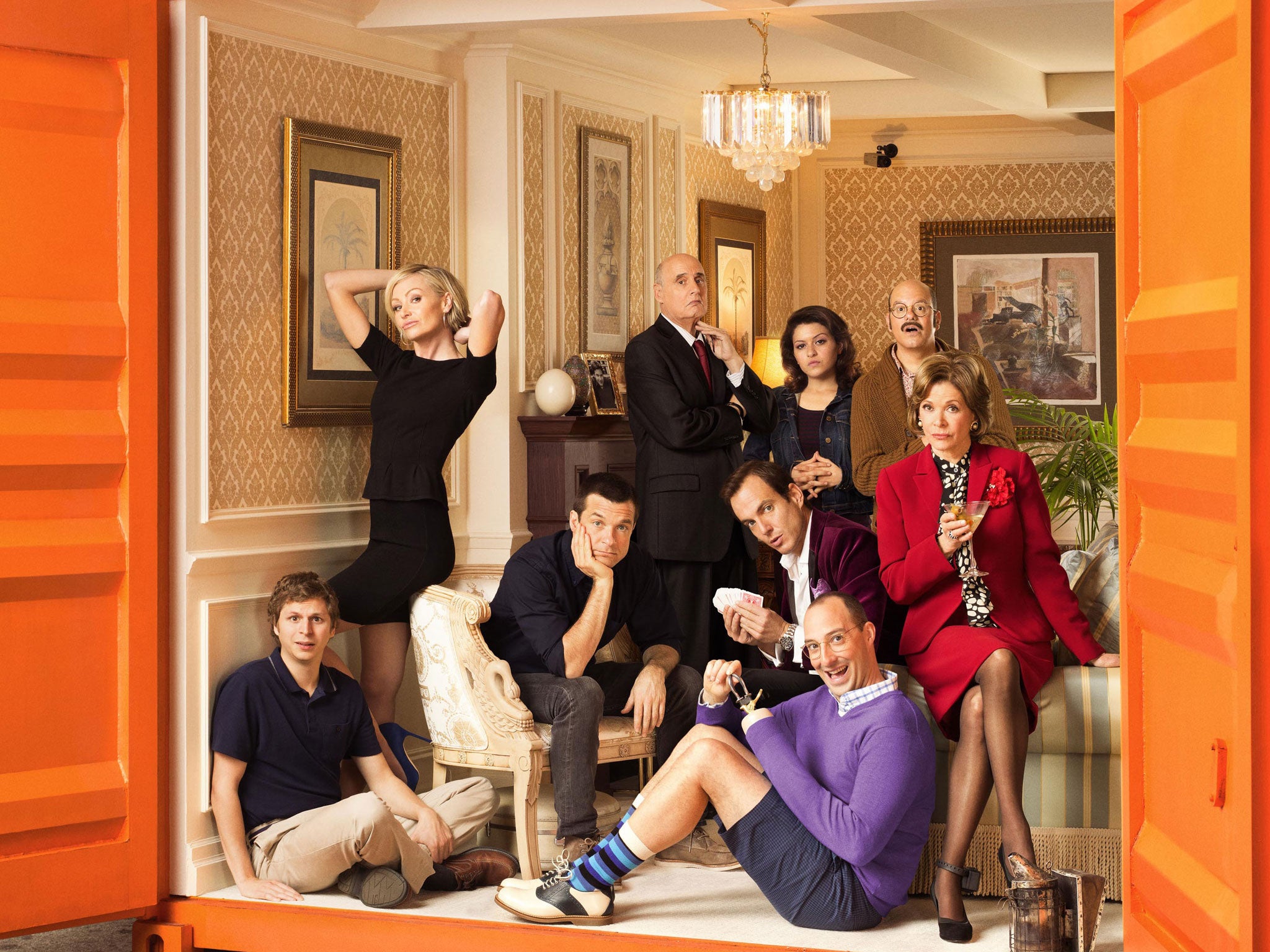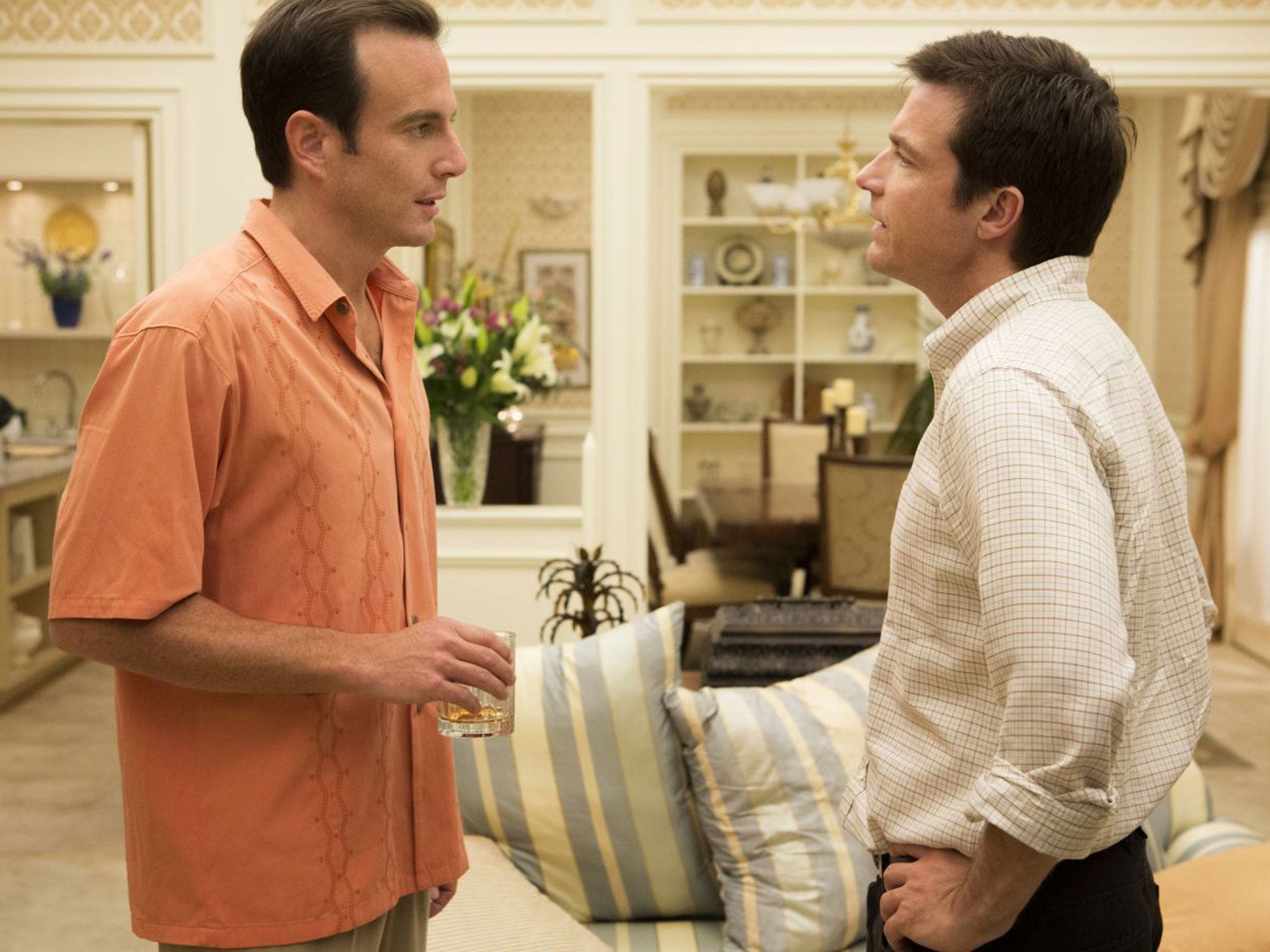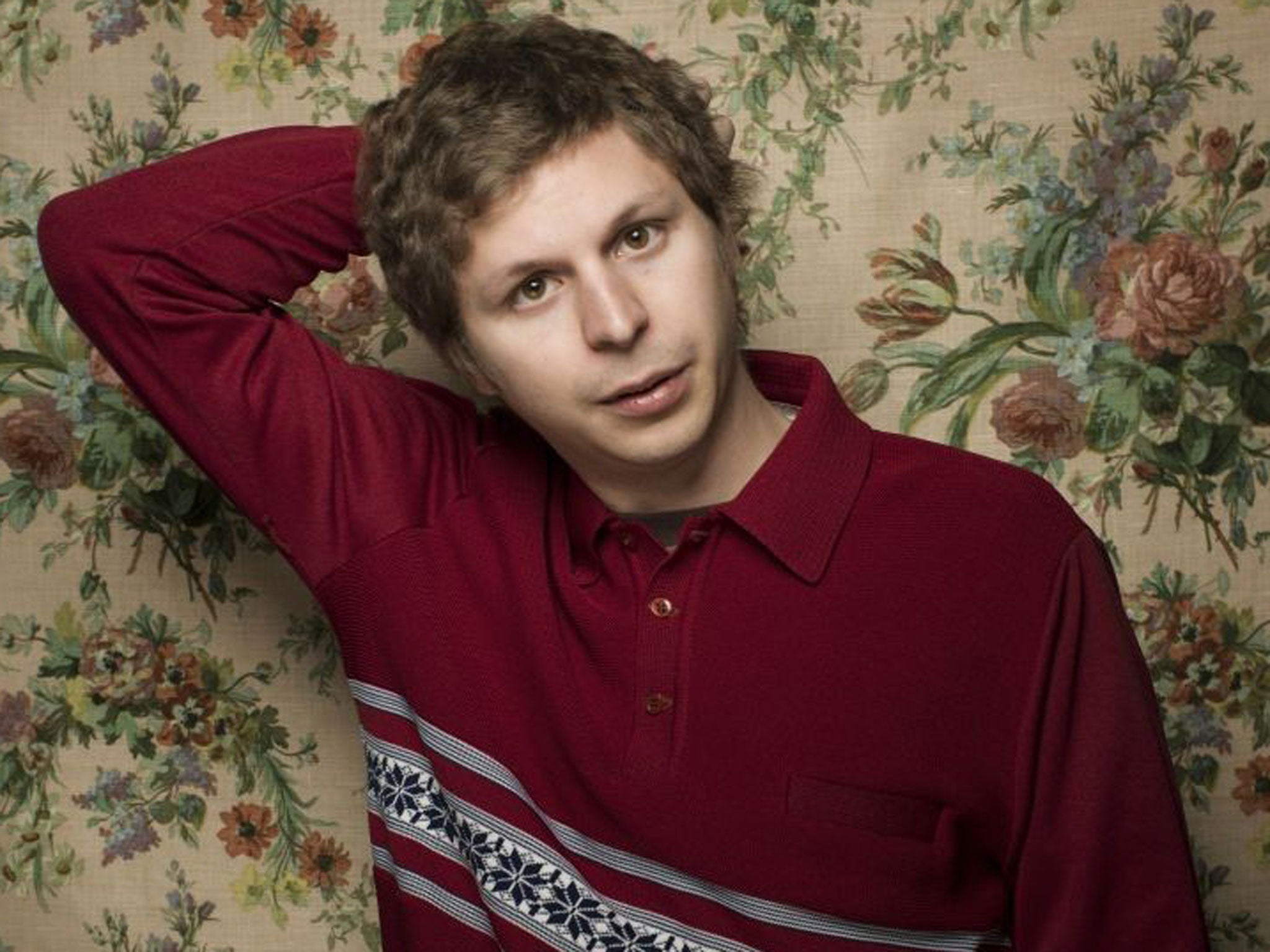Arrested Development's huge mistake: How the eccentric hit sitcom ruined its legacy
TV comedy in 2019 owes a godzilla-sized debt to the show, says Al Horner

Now the story of an eccentric cult sitcom that became the most influential American comedy of the Noughties after it was cancelled, and the one streaming service who had no choice but to bring it back. Arrested Development returned in 2013, resurrected by Netflix in a move met with huge excitement by fans of the series that centres on a family so haywire, they make The Simpsons look blissfully sedate. Eight years and just 31 episodes later, however, the streaming giant looks set to cancel it again. Today’s release of season five part two (the first part arrived last year, to middling reviews) is widely expected to bring the show to a close, for good this time. When asked if further instalments were likely, David Cross, who plays deluded doctor-turned-actor Tobias Fünke, told the Late Night with Seth Meyers Podcast: “I can’t see it happening.”
The streaming giant declined to make previews of the new episodes available to UK journalists. The cast don’t appear to be doing any press for it. There’s almost no reference at all to the impending episodes on any of Netflix’s social channels. After making a massive statement in 2013 reviving Arrested Development, one of their first ever “original” programmes, they appear happy to quietly slip its last episodes online and let a once monolithically praised comedy – lauded ‘the best sitcom on TV” by Entertainment Weekly and one of the greatest shows ever by Time magazine – go out with a whimper as faint as Tobias sobbing in a shower.
Why is one of the most important comedies of the century so far about to bow out with barely a mention? It’s complicated. Arrested Development first arrived on screens in 2003. Developed by writer Mitch Hurwitz from an idea by Ron Howard (who went on to narrate, produce and guest star in the show), it told the story of the Bluths: a dysfunctional band of narcissists and "never nudes" trying to keep their corrupt family business alive in the Californian real estate market. If that premise doesn’t strike you as comic gold, don’t worry: that was America’s first reaction too.
The show’s first three seasons, broadcast on Fox, attracted dismal ratings, as audiences at first struggled to accept the way the show chicken danced dismissively in the face of convention. Likeable characters? Who needs those when you can have schemers, sleazes, liars, failed magicians and drunks instead? Seinfeld, Friends and practically every other TV comedy before it were shot on fixed sets, often in front of live studio audiences: where’s the fun in that, thought the makers of Arrested Development, whose single camera setup and lack of a laugh track said “annyeong!” to a strange new sitcom style.
Fox cancelled the show in 2006, but word of mouth continued to spread. The show blossomed into a DVD box set sales success with a giant internationally worldwide (including in the UK, leading to the BBC syndicating the show in 2008). The series’ stair-car load of catchphrases proved perfect for pinging around internet forums and emerging social media platforms, which helped its visibility: screen grabs of failed magician Gob admitting “I’ve made a huge mistake” became an internet byword for any kind of fail or f*** up.

Though the show’s third and presumed final season was imperfect, bogged down in a meta storyline that reflected the uncertainty around the show (the family hold a Save the Bluths fundraiser in a story arc full of winks to the series’ impending cancellation), its original run had been a furiously paced masterclass in running quips and complex storylines that had heart as well as hilarity. When Netflix announced it had struck a deal to revive the show in 2011, fans rejoiced, counting down the months, weeks and days to a fourth season they’d given up hope of ever seeing. Two years later, when season four dropped on the streaming service in one go, fans (this writer included) took days off to binge it in one go. Stories circulated of Bluth-themed viewing parties, complete with frozen bananas, ice cream sandwiches and boxes of wine. The Guardian even ran a live blog to celebrate its release in real time.

There probably won’t be any live blogs this Friday. Not after the mess of its fourth season. In a way, the show had been a victim of its own success: having made megastars of its cast, Hurwitz and producer-narrator Ron Howard struggled to pin down the likes of Michael Cera, Jason Bateman, Jessica Walter and Portia de Rossi to film new episodes at the same time (even with Netflix’s considerable finances, there seemingly wasn’t enough money in the banana stand to get them all in one place). As a result, a show that had always benefited from its cast’s incredible onscreen chemistry was pushed into a format that seldom saw its stars overlap. This was, to borrow its most enduring catchphrase, a huge mistake: so bad, in fact, that Hurwitz ended up re-cutting and re-releasing the series later in a more linear order. This helped the season’s coherency issues, but did little to fix how badly Arrested Development’s writers had lost sight of what made the show and its characters tick.
Arrested Development could have characters who lived up to that title, locked in immature cycles of behaviour that flirted with depravity. George could get pally with Saddam Hussein and build flimsy homes in Iraq. Gob could cheat on his girlfriends. The family could embezzle, defraud, whatever – even incest was fair game, as cousins George Michael and Maeby navigated romantic urges for one another. But this only worked by having a moral anchor in the midst of that storm: Michael.
Bateman’s lead was, in the show’s first three seasons, the bewildered straight man, trying to keep them all together, as the show's perky intro sequence promised. He was a widow: a fact alluded to in the show but never pushed into the foreground. Instead, it was a sorrow that quietly underpinned his every move and motivation: family was all he had left and no matter what chaos they’d bring upon themselves (and him), he was determined to pull them out of it. Season four however saw his character change face: for some reason, he began dating his son’s girlfriend (played by Isla Fisher) and proved as duplicitous as his siblings/parents, made clear by a meta-textual story about Michael selling the rights for a movie version of the family’s story (Hurwitz spoke openly about seeing the fourth season as a bridge towards an Arrested Development movie he hoped to have made immediately after).
Reviews weren’t great. Fan reaction wasn’t either. Five years passed before season five arrived, again on Netflix. This time, off-screen distractions derailed it before these new (much better) episodes saw the light of day. First, there were sexual misconduct allegations made against Jeffrey Tambor, who plays George Sr, in November 2017 (the actor was accused of harassment on the set of Amazon drama Transparent, who duly fired him). Then, in an interview with The New York Times with the cast days before season five dropped, Walter broke down in tears recalling an uncomfortable moment of aggression on set from Tambor (“I’ve never had anybody yell at me like that on a set,” she said). The way Bateman and his male co-stars then spoke over Walter, attempting to play down the row, dovetailed disappointingly with the themes of the #MeToo movement. The interview sparked a thousand think pieces dissecting the ways the exchange encapsulated society’s inability to listen to victims of toxic masculinity. All of a sudden, the ukulele strums and pillow-light laughs of the show’s glory days felt further away than ever.
Arrested Development changed, but so did we. Sure, the show’s one-liners are less zippy since its revival. Sure, its complex plots have become so tangled and knotty they basically require a doctorate to follow. But Arrested Development was also show of its time. Its recurring allusions to Iraq and the ongoing war on terror drew a line between the perpetual arrested development of the Bluths and then-president George Bush’s childish, farcical governing of America. Lucille’s opulent living room a proxy for the White House war room.
Today, a wealthy family steeped in corruption, featuring a greedy, con-man father, disaffected wife and an entitled daughter who thinks of herself as an altruistic saviour, can’t help but conjure thoughts of another family many would rather not laugh about. “There’s not a lot that’s funny about the Trumps. They’re not particularly funny in any way,“ Arnett told The New York Times in response to comparisons between the Bluths and America’s first family. “Well, they were,” added Bateman. “Now it’s straight depressing.”
Depressing is a word fans who fell in love with Arrested Development in its original form might call its current state: now that the show’s conclusion to season five has landed, it’s doubtful many will be praying for another renewal. It’s worth remembering though, if this is indeed its last hurrah, how good the show once was. That once there was no touching its hurricane-of-blink-and-you’ll-miss-it gags, surprises and syrupy moments of heartwarming family drama. Our pop culture landscape today would be drastically different without it: TV comedy in 2019 owes a godzilla-sized debt to the show. There may never have been BoJack Horseman or Archer, both of which feature stars from Arrested Development as well as generous servings of its manic, wild-eyed humour. It kicked open the door for the black comic barrage and selfish, shouting protagonists of It’s Always Sunny in Philadelphia, and blazed a trail for single cam successes like The Office, Parks and Recreation and Modern Family.

Its cast became household names, not least Michael Cera, who followed the show’s original run with a turn in the late-Noughties box-office smash Superbad. And its behind-the-scenes talent didn’t fare too badly either: helming the year’s most eagerly anticipated blockbuster, Avengers: End Game, when it lands next month are director duo the Russo Brothers, who’ve come a long way since cutting their teeth directing the exploits of George Michael, Lindsay, Gob and co.
OK, its fall from grace may have been as hard as Mrs Featherbottom plummeting from a balcony straight through a glass coffee table. But Arrested Development, the eccentric sitcom no one saw coming yet rewrote the rules on TV comedy, will be missed.
Arrested Development season five part two is out on Netflix today
Join our commenting forum
Join thought-provoking conversations, follow other Independent readers and see their replies
Comments
Bookmark popover
Removed from bookmarks